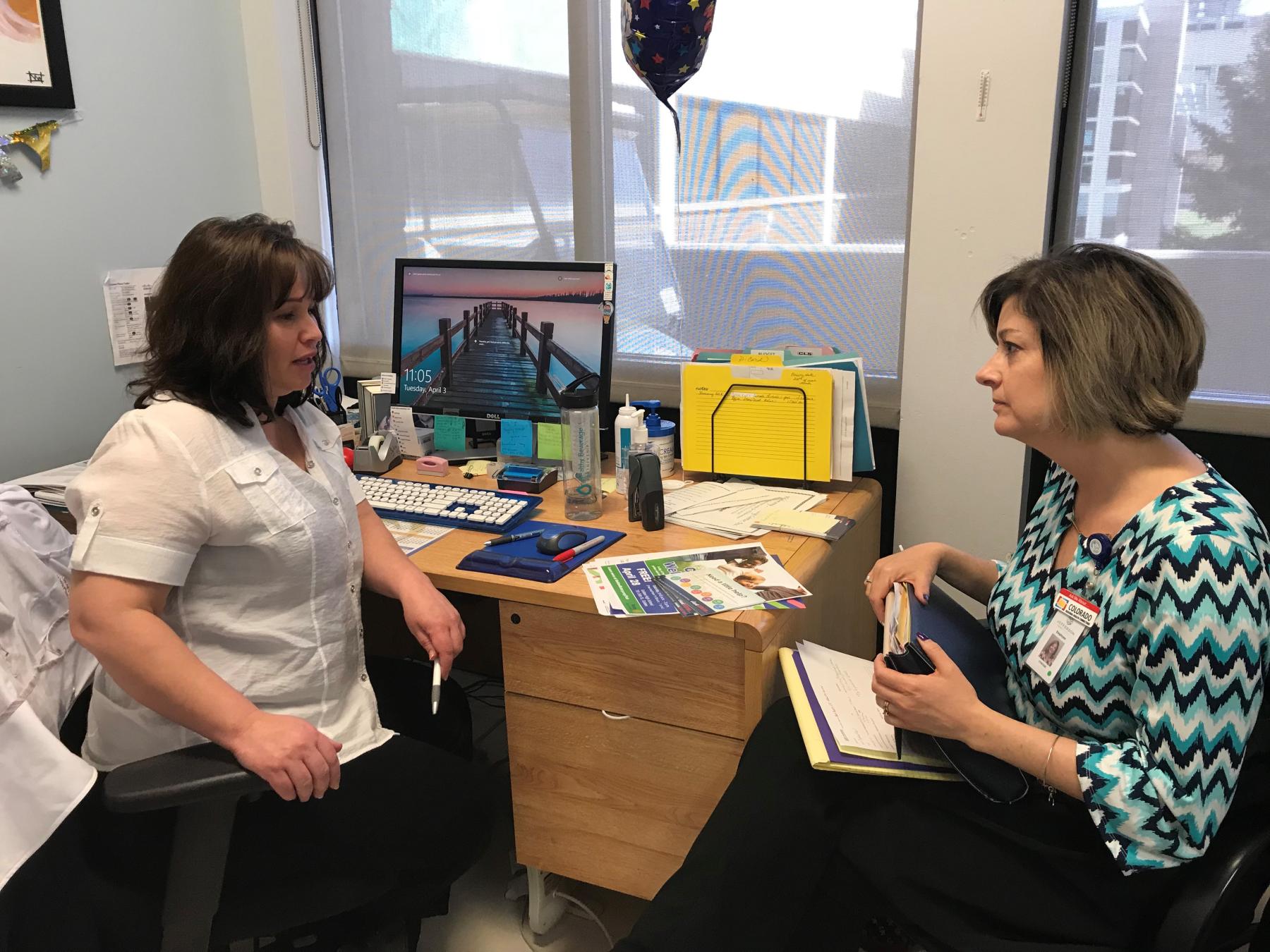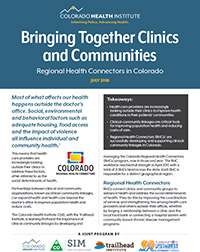Regional Health Connectors Make Clinical-Community Links Happen

This spring, I spent a day with Cynthia Farrar at Red Rocks Community College’s campus in Lakewood. We met the director of the college's health center, Sylvia Vigil, PA-C. She’s the sole medical provider for students, faculty, and staff at a clinic where most patients are uninsured or on Medicaid.
Cynthia and I spent an hour with Sylvia. During the conversation, Cynthia asked about the clinic’s goals, needs, and existing connections. Sylvia shared challenges in supporting students and staff’s mental and physical health, such as providing counseling to students who don’t come to campus during school breaks, referring patients with non-medical needs to resources like food banks, and finding specialists to care for her patients.
The Red Rocks Community Center Health Center team is small – just four part-time staff – and Sylvia was looking for ways to build the capacity to serve students outside of the clinic.
That’s where Cynthia comes in. She is a Regional Health Connector for Jefferson County, which means her job is to make connections between clinics (like the one at Red Rocks Community Center) and other community groups. The idea is to make full use of a community’s resources to improve its people’s health by forging or strengthening “clinical-community linkages” — partnerships that expand health and health care beyond the doctor’s office to improve population health and reduce costs.

A new report from CHI looks at efforts to promote and enhance these linkages. This report explains how the RHC program can enhance collaborations between health care providers and community organizations for the well-being of all Coloradans.
CHI co-hosts the Regional Health Connector program with the Trailhead Institute.
In the four months that followed that initial meeting, Cynthia helped Sylvia to make connections to several community organizations.
New clinical-community linkages formed at Red Rocks Community College included:
- Creating a workflow and referral system between the Health Center and Jefferson County Public Health (JCPH) for STI testing, TB testing, Varicella vaccine and several other services offered by the health department. These services are highly needed at the Health Center, but it doesn’t have the resources to meet the demand.
- Coordinating a nutrition class for students at risk for diabetes and obesity, to be led by a Public Health Nurse from Jefferson County Public Health.
- Distributing and posting anti-stigma messages from “Let’s Talk Colorado” at the Health Center. The goal of this messaging campaign is to encourage people to seek help for mental health challenges like depression and anxiety.
And that’s just one example one of the Regional Health Connectors at work across Colorado. There are 20 other RHCs working to make similar links and work on health-focused projects throughout the state.
CHI’s report on clinical-community linkages also highlights a story about another one of Cynthia’s connections. Read more about that connection and other clinical-community linkages in CHI’s report.
And visit www.regionalhealthconnectors.org to learn more about the Regional Health Connector program.
Photo: RHC Cynthia Farrar, right, meets with Red Rocks Community College's Sylvia Virgil to talk about her clinic's needs.
Find the Regional Health Connectors and Rebecca Rapport on Facebook and Twitter: @RHConnectors, @CHI_RebeccaR
Want more information about health and health policy in Colorado? Subscribe to our newsletter or find CHI on Facebook and Twitter
Related Blogs and Research
- Bringing Together Clinics and Communities
- Colorado Regional Health Connectors
- Food for Thought: It Takes a Village
- Three Lessons from the Road: What We Learned During the Regional Health Connector Road Show
